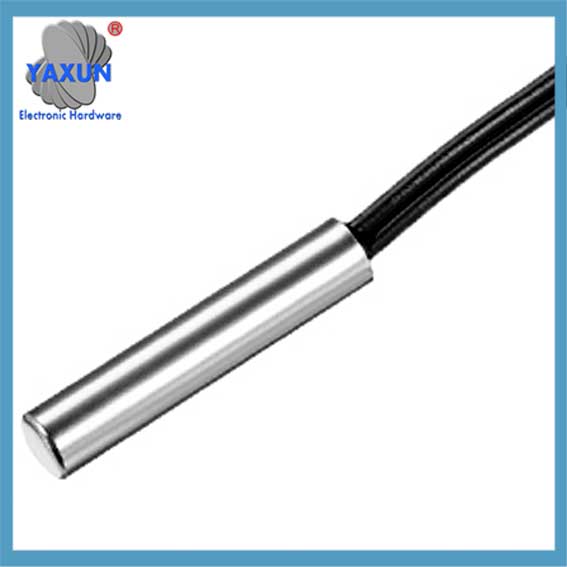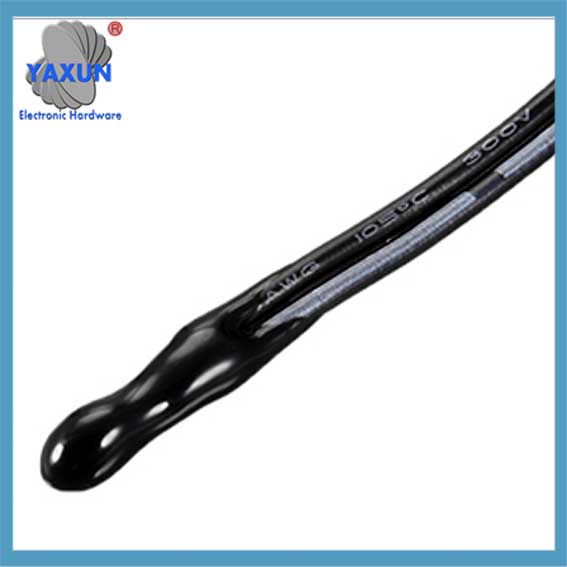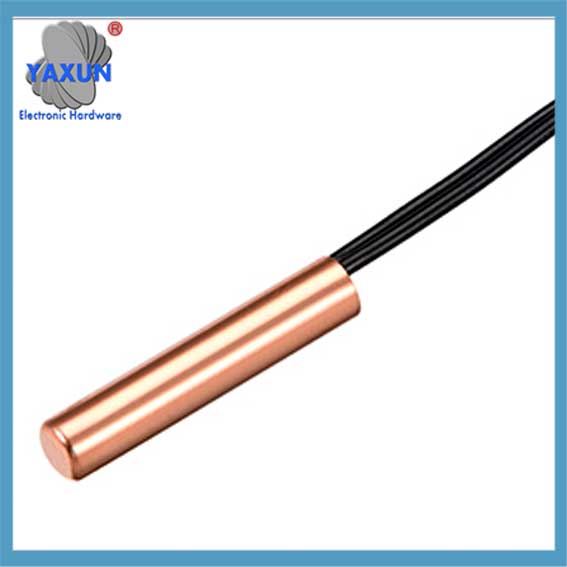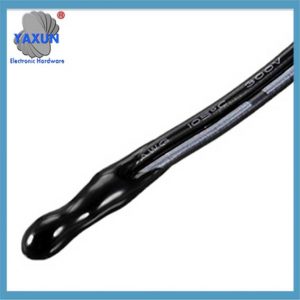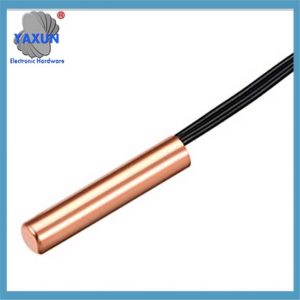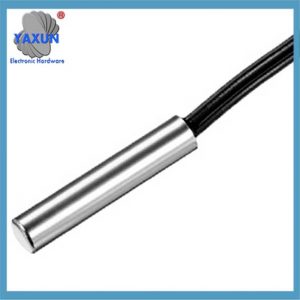Categorie di prodotti
- Interruttore termico 20
- Portafusibili 36
- Sensore di temperatura 67
- Interruttore termico 64
- Fusibile per auto 19
- Fusibili imbullonati 7
- fusibile termico 32
- fusibili a montaggio superficiale 12
- termistore 22
- Portafusibili per montaggio su PCB 27
- Cablaggio 6
- Portafusibili a lama 17
- termostato 46
- Fusibile elettrico 14
Tag dei prodotti
10K Sensore temperatura termistore NTC 78.7 Sonda sensibile in acciaio inossidabile da pollici per condizionatore d'aria
10K Sensore temperatura termistore NTC 78.7 Sonda sensibile in acciaio inossidabile da pollici per condizionatore d'aria, Cavo e connettore possono essere personalizzati.
Sensore di temperatura NTC 10K ad alta precisione, intervallo di temperatura di misurazione: -30°C fino a +120°C (-22°F a +248°F);
10K Sensore temperatura termistore NTC 78.7 Sonda sensibile in acciaio inossidabile da pollici per condizionatore d'aria, Cavo e connettore possono essere personalizzati.
Sensore di temperatura NTC 10K ad alta precisione, intervallo di temperatura di misurazione: -30°C fino a +120°C (-22°F a +248°F);
Stainless Steel waterproof probe, 5mm dia 25mm length, fast temperature conduction;
2000mm(79 pollice) wire length, XH2.54-2P plug;
Widely Application for Household Appliances: Air conditioner, frigorifero, freezer, scaldabagno, air heater, dishwasher, dryer,ecc.
Widely Application in Temperature Control System: Greenhouse, aquarium, ecc.
Epoxy Head NTC Temperature Sensor:
Epoxy head is generally used to detect the ambient temperature, with corrosion resistance.
Copper Head NTC Temperature Sensor:
Copper head is generally used in air conditioning to detect the temperature of copper pipe, with fast temperature conduction.
Stainless Steel Head NTC Temperature Sensor:
Stainless steel head is used to detect the temperature of water and air, with waterproof effect.
Sensore di temperatura NTC:
Resistor: 5K, 10K, 15K, 20K, 50K, 100K, 150K, 200K;
Sensor Head Material: Acciaio inossidabile, Rame, Epoxy;
Measuring Temperature Range: -30°C to +105°C (-22°F to +221°F);
Lunghezza: 20cm, 30cm, 40cm, 50cm, 100cm, 200cm, 1000CM;
10K NTC Temperature Sensor Widely Applications:
For Household Appliances: Air conditioner, frigorifero, freezer, scaldabagno, air heater, dishwasher, dryer,ecc.
For Car: Automobile air conditioner, water temperature sensor, intake air temperature sensor, engine.
Temperature Control System: Greenhouse, aquarium, ecc.
Understanding NTC temperature probes
In many fields of modern technology, temperature measurement and monitoring are crucial. As a commonly used temperature detection element, NTC temperature probes play an indispensable role. It is widely used in many industries such as industry, cure mediche, and home appliances, providing us with a reliable means to accurately obtain temperature information.
1. The basic principle of NTC temperature probes
NTC is the abbreviation of Negative Temperature Coefficient. The core of NTC temperature probes is made of thermistor materials with negative temperature coefficients. The basic principle is that as the temperature rises, the resistance of the thermistor will drop significantly. By measuring the change in resistance value, the change in temperature can be indirectly determined.
2. Characteristics of NTC temperature probes
High sensitivity: can respond quickly and accurately to subtle changes in temperature.
Good stability: can maintain stable performance during long-term use.
Wide temperature measurement range: can adapt to the measurement needs of different temperature environments.
Small size and light weight: easy to install and integrate into various devices.
3. Application fields of NTC temperature probes
Automazione industriale: used for temperature monitoring during the production process to ensure smooth production and stable product quality.
Air conditioning and refrigeration systems: accurately control indoor temperature and the operating status of refrigeration equipment.
Medical equipment: such as thermometers and temperature measurement parts in medical instruments.
Electronic equipment: prevent electronic components from being damaged by overheating.
Industria automobilistica: monitor the temperature of key parts such as automobile engines.
4. Key points for selecting NTC temperature probes
Intervallo di misurazione della temperatura: select the appropriate temperature range according to the specific application scenario.
Requisiti di precisione: different accuracy levels meet different needs.
Tempo di risposta: for scenarios with rapid temperature changes, probes with shorter response times are required.
Size and shape: adapt to the requirements of the installation environment.
5. Precautions for installation and use of NTC temperature probes
Correct installation: ensure that the probe is in good contact with the object being measured to avoid measurement errors.
Avoid interference: stay away from interference sources such as strong magnetic fields and electric fields.
Calibrate regularly: to ensure the accuracy of the measurement.
Protect the probe: prevent mechanical damage or chemical corrosion.
VI. Development trend of NTC temperature probe
With the continuous advancement of science and technology, NTC temperature probe is also constantly developing and improving. In the future, it will develop in the direction of higher accuracy, faster response, smaller size and stronger adaptability to better meet the growing needs of various fields.
VII. Conclusione
As an important temperature detection tool, NTC temperature probe plays an irreplaceable role in modern society. A deep understanding of its principles, characteristics, applications and development trends will help us better use it to serve our production and life. With the continuous innovation of technology, it is believed that NTC temperature probe will continue to show its strong vitality and broad application prospects in the future.
Contattaci
Aspetto la tua email, ti risponderemo entro 12 ore con le preziose informazioni di cui avevi bisogno.
 English
English العربية
العربية Български
Български 粤语
粤语 中文(简体)
中文(简体) 中文(漢字)
中文(漢字) Nederlands
Nederlands Suomi
Suomi Français
Français Deutsch
Deutsch Ελληνικά
Ελληνικά Magyar
Magyar Italiano
Italiano 日本語
日本語 한국어
한국어 Polski
Polski Português
Português Română
Română Русский
Русский Slovenščina
Slovenščina Español
Español Svenska
Svenska ภาษาไทย
ภาษาไทย Türkçe
Türkçe Tiếng Việt
Tiếng Việt
